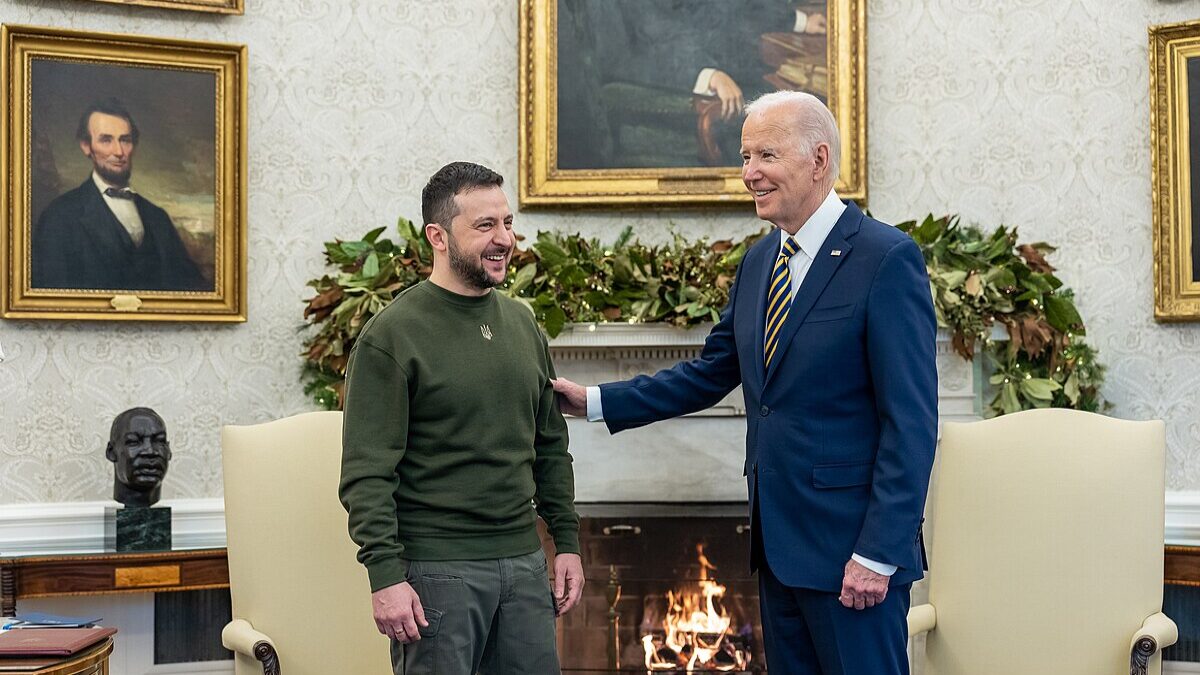Biden veto of solar tariff resolution upheld by House.
The House Fails to Override Biden’s Veto on Tariff Moratorium
The House failed to override President Joe Biden‘s veto of a bipartisan resolution that would have canceled his moratorium on tariffs on Asian solar imports on Wednesday.
The effort fell short of the two-thirds majority vote required to override Biden’s veto, protecting the tariff moratorium through next summer, when it expires. The final vote was 214-205.
MAKE OR BREAK: THIS WEEK INTO NEXT IS CRITICAL WINDOW FOR DEBT CEILING NEGOTIATIONS
House lawmakers passed the Congressional Review Act resolution of disapproval in late April, followed by Senate passage days later on May 3, seeking to cancel the tariff moratorium.
Both votes had bipartisan support, and the handful of Democrats in each chamber who supported the resolutions argued the White House was allowing Chinese solar manufacturers to skirt tariffs with the pause, injuring domestic manufacturers. Opponents of the measure said it would cost solar sector jobs that depend on imported products.
Biden declared an emergency using his trade powers in June 2022, protecting solar imports from four Asian countries from anti-dumping duties that are in force against Chinese products. The decision was meant to serve as a “bridge,” allowing imports to continue to flow as U.S. manufacturing capacity increases, Biden said.
The Commerce Department later issued a preliminary determination in its anti-circumvention investigation, finding that Chinese-parented companies exporting solar cells and modules from Malaysia, Thailand, Vietnam, and Cambodia to the U.S. are circumventing existing duties on solar products, setting the stage for tariffs to be extended to those imports. The moratorium insulates those products from tariffs through next June.
What Happened?
The House of Representatives failed to override President Joe Biden’s veto of a bipartisan resolution that would have canceled his moratorium on tariffs on Asian solar imports. The final vote was 214-205, falling short of the two-thirds majority vote required to override the veto. This protects the tariff moratorium through next summer when it expires.
Why Did This Happen?
House lawmakers passed the Congressional Review Act resolution of disapproval in late April, followed by Senate passage days later on May 3, seeking to cancel the tariff moratorium. Both votes had bipartisan support, and the handful of Democrats in each chamber who supported the resolutions argued the White House was allowing Chinese solar manufacturers to skirt tariffs with the pause, injuring domestic manufacturers. Opponents of the measure said it would cost solar sector jobs that depend on imported products.
What’s Next?
Biden declared an emergency using his trade powers in June 2022, protecting solar imports from four Asian countries from anti-dumping duties that are in force against Chinese products. The decision was meant to serve as a “bridge,” allowing imports to continue to flow as U.S. manufacturing capacity increases. The Commerce Department later issued a preliminary determination in its anti-circumvention investigation, finding that Chinese-parented companies exporting solar cells and modules from Malaysia, Thailand, Vietnam, and Cambodia to the U.S. are circumventing existing duties on solar products, setting the stage for tariffs to be extended to those imports. The moratorium insulates those products from tariffs through next June.
Conclusion
The House’s failure to override Biden’s veto of the tariff moratorium cancellation resolution protects the tariff moratorium through next summer. The decision has bipartisan support, with Democrats arguing that the White House was allowing Chinese solar manufacturers to skirt tariffs with the pause, injuring domestic manufacturers, while opponents of the measure said it would cost solar sector jobs that depend on imported products. Biden’s declaration of an emergency using his trade powers in June 2022 protects solar imports from four Asian countries from anti-dumping duties that are in force against Chinese products, allowing imports to continue to flow as U.S. manufacturing capacity increases.
- Key Takeaways:
- The House failed to override Biden’s veto of a bipartisan resolution that would have canceled his moratorium on tariffs on Asian solar imports.
- The final vote was 214-205, falling short of the two-thirds majority vote required to override the veto.
- Biden declared an emergency using his trade powers in June 2022, protecting solar imports from four Asian countries from anti-dumping duties that are in force against Chinese products.
- The Commerce Department later issued a preliminary determination in its anti-circumvention investigation, finding that Chinese-parented companies exporting solar cells and modules from Malaysia, Thailand, Vietnam, and Cambodia to the U.S. are circumventing existing duties on solar products, setting the stage for tariffs to be extended to those imports.
CLICK HERE TO READ MORE FROM THE WASHINGTON EXAMINER
" Conservative News Daily does not always share or support the views and opinions expressed here; they are just those of the writer."





Now loading...